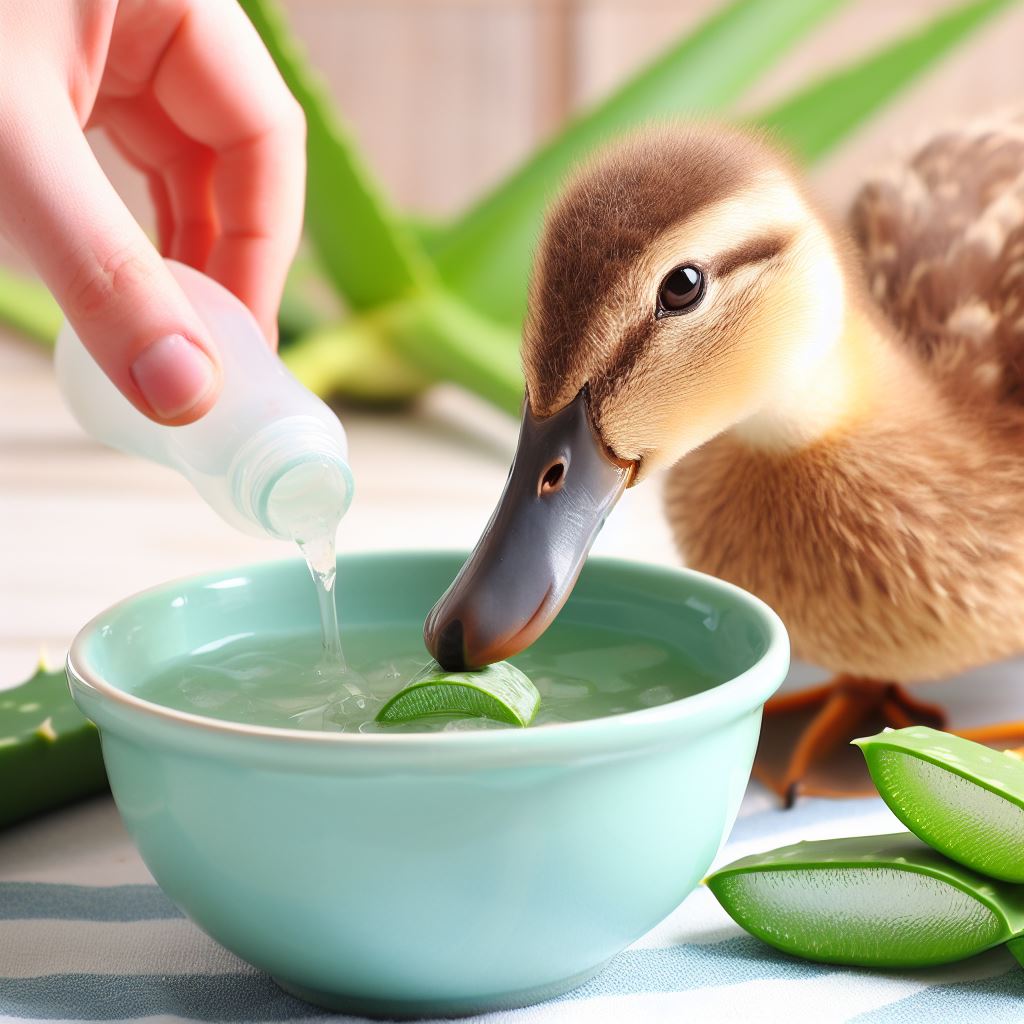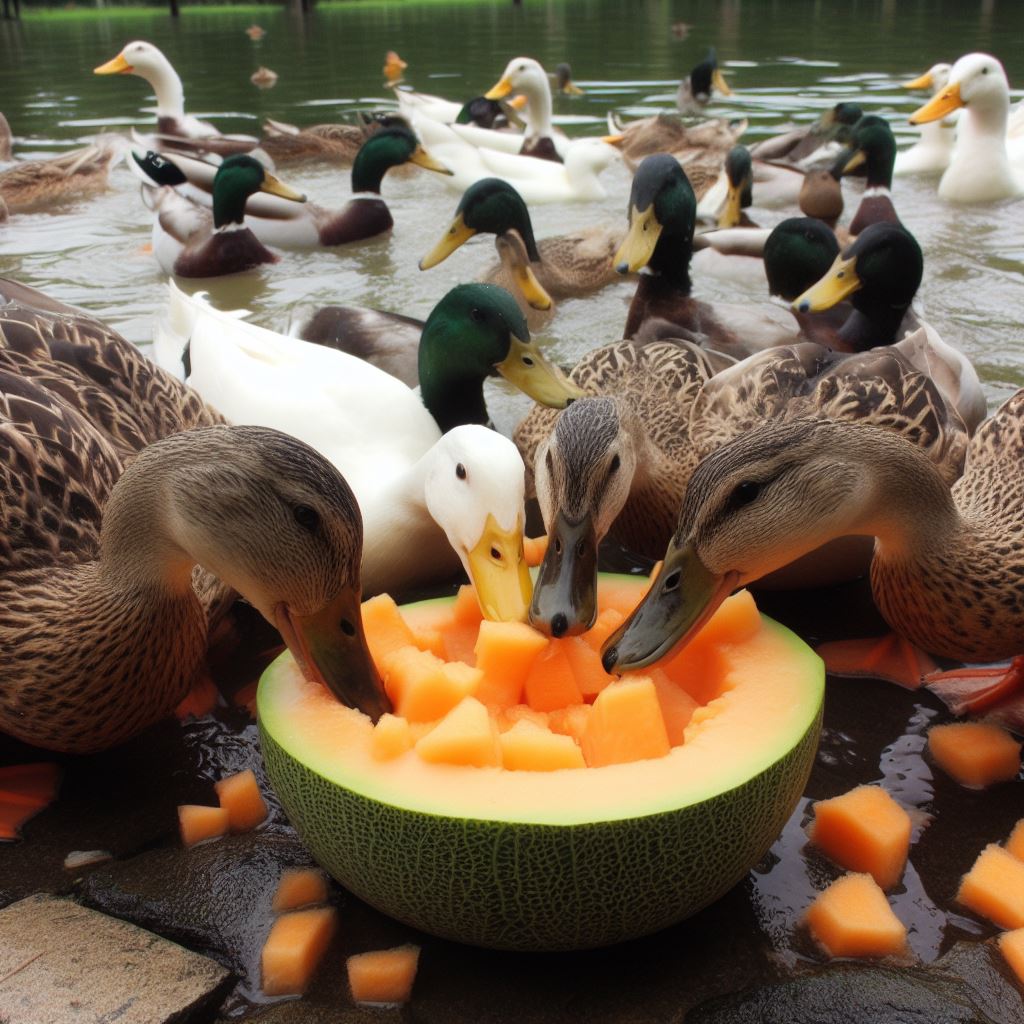Cayuga Duck Egg Color Guide: Shades of Black and Green
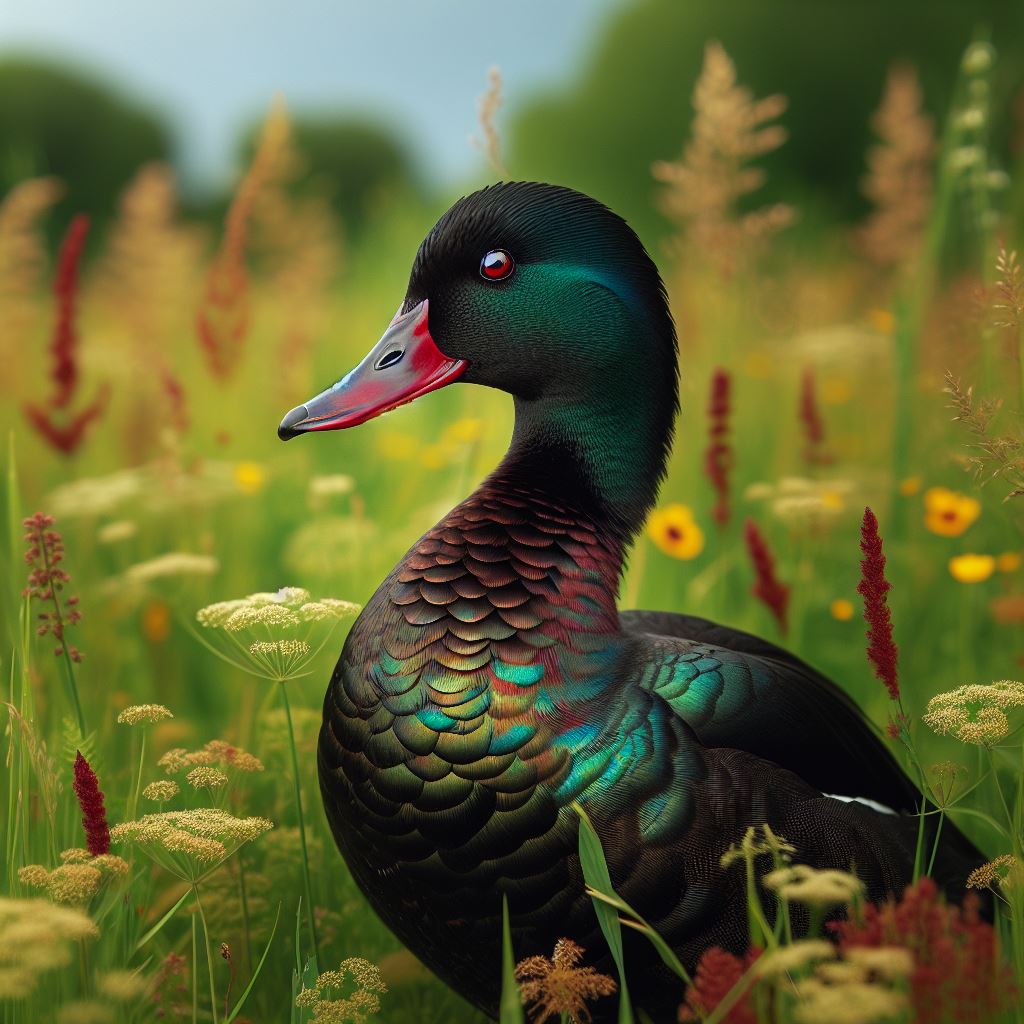
Table of content:
The Cayuga duck is a rare and unique duck breed known for its gorgeous greenish-black colored plumage and extravagant colored duck eggs. Unlike typical white or brown chicken eggs, Cayuga ducks lay dark eggs in shades of black, dark brown, olive, and even chocolate. Their egg color and uniqueness in the poultry world is what makes this duck breed a favorite among backyard duck enthusiasts and small farm homesteaders.
An Overview of Cayuga Duck Egg Colors
When it comes to duck egg colors, Cayugas top the list as one of the most diverse. Their egg shade can range from jet black to a lighter mottled appearance with speckles. The hens start laying eggs around 5-7 months old and will be most productive for the first few years. On average, a Cayuga duck will lay 100-150 gorgeous duck eggs per year.
The main egg colors seen in Cayuga ducks are:
- Jet Black
- Chocolate Brown
- Olive Green
- Dark Brown
- Light Brown
- Cream
The exact egg shade that is laid can vary from duck to duck based on genetics. Typically, the darker the duck’s plumage, the darker colored duck eggs it will produce.
As seen above, Cayuga duck egg color can cover the full spectrum of black, brown, olive green, grey, and white. When the eggs are held up to light, different hues and tints are visible. The color intensity, density, and darkness depends on the individual duck.
Over years of selective breeding, Cayugas have become reliable egg layers that produce a nice, large duck egg. Their productivity and unique egg color varieties are what make them a special addition to any backyard duck flock.
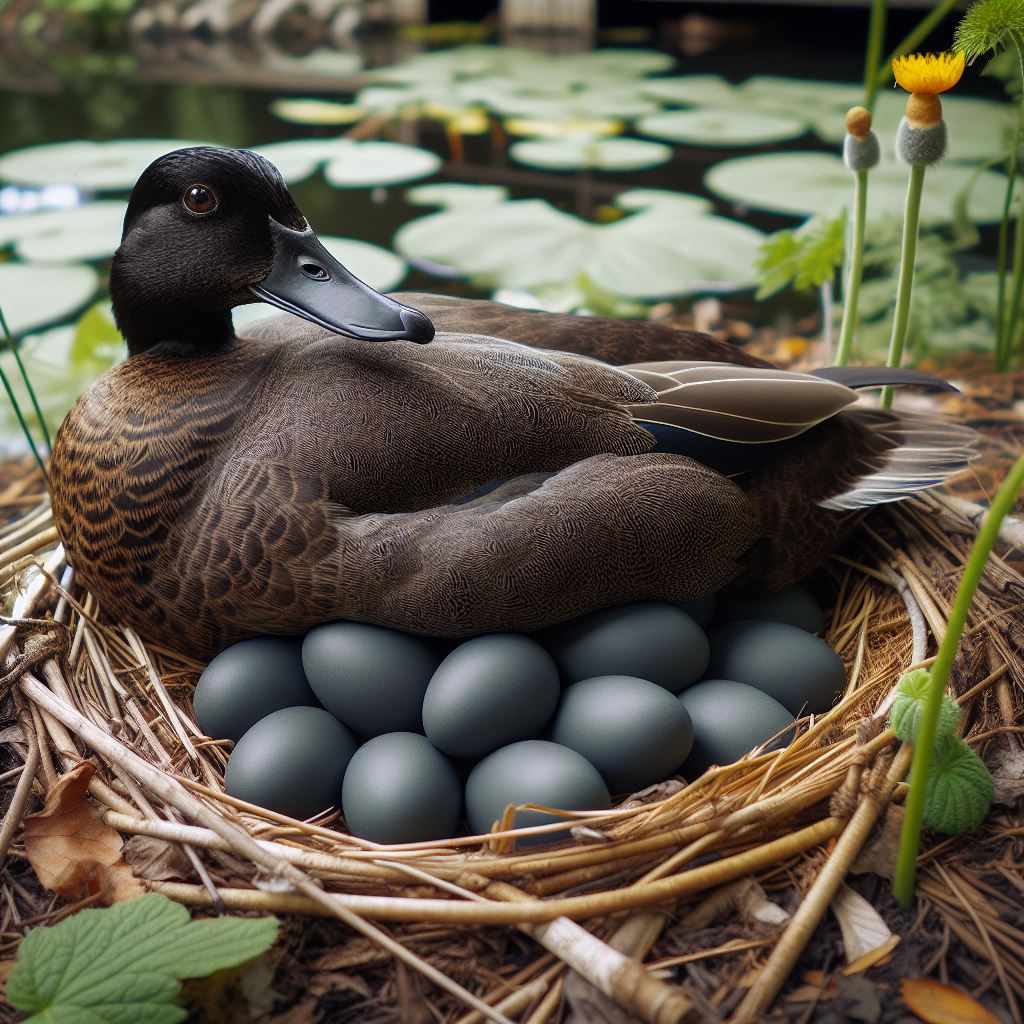 What Causes Cayuga Duck Egg Color?
What Causes Cayuga Duck Egg Color?
The cause of Cayuga’s exotic and dark egg coloring comes down to genetics and pigment. All duck eggs have a natural white shell made mostly of calcium carbonate. The olive green and black coloration occurs when pigment is deposited onto the shell as the egg travels through the oviduct.
The type of egg pigment is influenced by the duck’s genetics. In Cayugas and other dark duck breeds, a gene mutation causes them to produce eumelanin pigment which is black and brown. This gives their feathers and eggs a darker coloration.
Egg color genetics are not completely understood but it is thought to be a polygenic trait. Selective breeding over generations to produce Cayugas with dark green-black plumage has also resulted in extra pigment being deposited on their eggshells.
So in summary, it is the combination of special breeding and genetics that gives the Cayuga duck its gorgeous and unique egg colors ranging from chocolate brown to black.
What Do Cayuga Duck Eggs Taste Like?
A common question that arises is whether the dark eggs laid by Cayuga ducks taste any different than chicken eggs. Many people wonder if the unusual color translates to a bold or unusual flavor.
The good news is that Cayugas produce a large duck egg with a nice rich taste just like any other duck breed. The green-black shell does not influence flavor at all. Instead, factors like the duck’s diet play a bigger role. As long as they have access to grass, bugs, vegetation and clean water, Cayuga duck egg layers will produce delicious, nutritious eggs.
Some describe duck eggs as having a richer, fuller flavor than chicken eggs. The whites tend to be thicker and the bright orange yolks are much larger due to their higher fat content. This makes them excellent for baking.
So while their egg color spectrum is highly unique, Cayuga duck eggs taste like any other delicious duck egg! Their gorgeous colored duck eggs make a beautiful visual statement but the inner quality and flavor is just as outstanding.
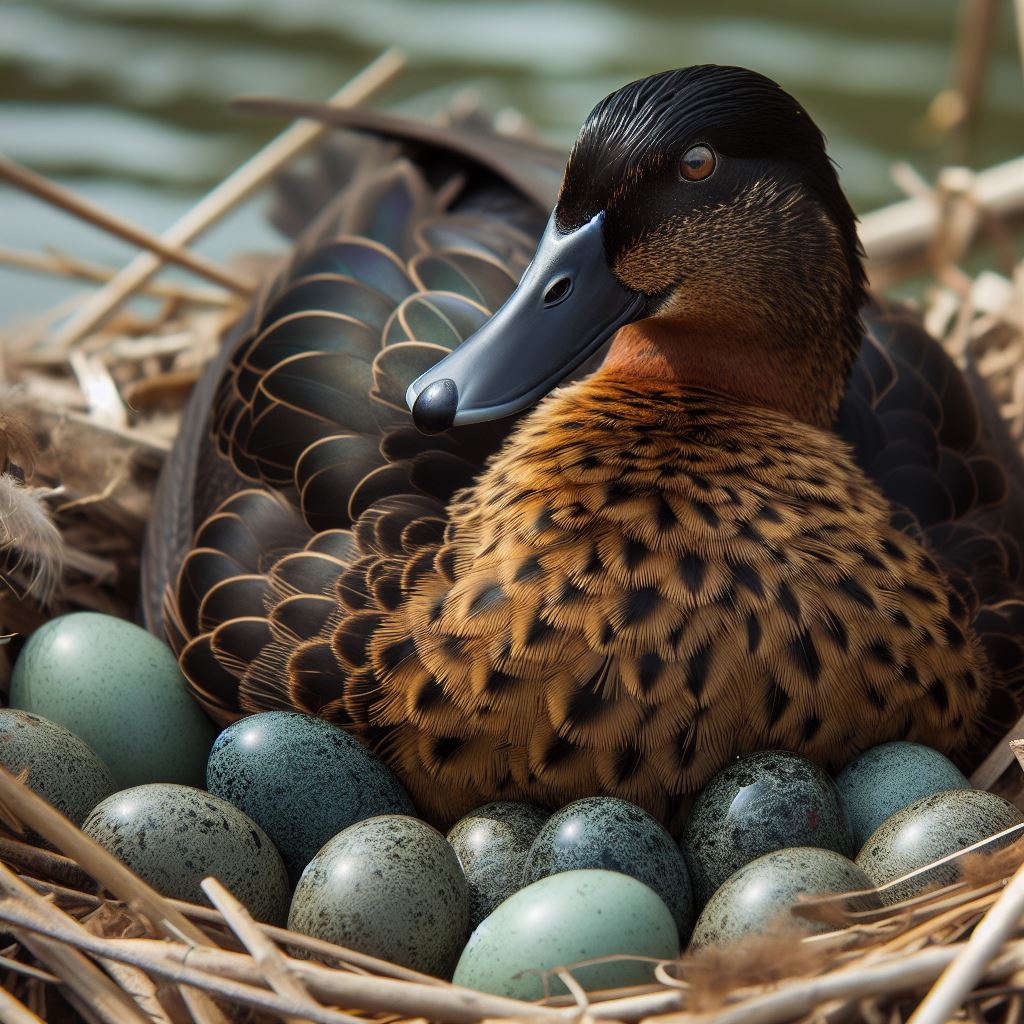 Comparing Cayuga Duck Egg Color to Other Duck Breeds
Comparing Cayuga Duck Egg Color to Other Duck Breeds
As mentioned earlier, one of the reasons Cayuga ducks are so popular is due to their egg’s unique and vibrant coloration patterns. This sets them apart from most other duck breeds that lay the typical white or light brown eggs.
Here is how Cayuga duck eggs compare to some other types of domestic duck eggs:
White Egg Layers
- Pekin
- Aylesbury
- Buff
- Ancona
- Magpie duck
Cream Egg Layers
- Welsh Harlequin
- Appleyard
- Saxony
- Silver Appleyard
Colored Egg Layers
- Cayuga (black, olive, brown)
- Crested (brown, blue, white)
- Swedish (white, blue, green)
- Duclair (brown, cream)
As you can see, no other common duck breed displays the range of exotic egg colors seen in the Cayugas from jet black to olive green. The beautiful chocolate brown Crested duck also lays a dark brown egg but not to the same degree of darkness.
Both the Blue Swedish duck and Americauna chicken also lay bluish-green eggs. But Cayuga duck eggs are darker and also encompass various shades of black, brown, olive and cream.
Benefits of Raising Backyard Cayuga Ducks
Cayuga ducks make a great addition to a small farm or backyard homestead. Here are some of the reasons why they are steadily growing in popularity:
Reliable Egg Production
Cayuga ducks are productive egg layers and will reward their owners with roughly 150 gorgeous blackish-green eggs per year. Due to their breeding, they tend to be very consistent layers, especially in their first few seasons.
Unique and Beautiful Eggs
Of course, one of the main appeals of Cayugas is those stunning egg colors! Their darkened eggs are unique and a true conversation piece. Customers seeking specialty eggs at farmer’s markets are often thrilled to purchase this exotic variety.
Excellent Foraging Skills
These ducks are active foragers and grazers which helps control insects and weeds. Since they fill up on grass and bugs, they require less feed overall, making them economical backyard ducks.
Low Noise Level
Cayugas, like many duck breeds, are nice and quiet – especially compared to louder chickens and guineas! They produce minimal quacking and are very docile in temperament.
High Quality Meat
While raised mainly for eggs, Cayuga ducks produce delicious, lean meat as well. Their dual purpose as meat and egg birds makes them very efficient.
Gorgeous Blackish-Green Plumage
Lastly, Cayugas are simply gorgeous to look at! Their iridescent green-black feathers make them stand out compared to the typical white and brown ducks. Even with dirty feathers, they still glisten a beautiful beetle green in the sunlight.
Getting Started with Cayuga Ducks
Hopefully, this article has provided plenty of details about the origins of Cayuga egg color varieties and why they make fantastic backyard ducks. For those interested in raising their flock, here is a quick checklist to get started:
- Make sure your property allows poultry and that you have at least 1/4 acre space per duck pair.
- Build an enclosed duck house or pen that protects them from cold winds and overnight predators. Ducks can withstand cold but need draft protection.
- Use a plastic kiddie pool, galvanized metal tub or shallow pond as a water source since ducks love splashing. Refill with clean water often.
- Buy day-old ducklings or fully feathered juveniles from a local breeder, feed store or online hatchery. Ensure they were vaccinated.
- Provide a game bird starter feed and oyster shell supplement. Monitor daily for good weight gain.
- At 6 weeks transition to a 16% layer pellet. Provide adequate amounts while also allowing pasture grazing.
Once sexually mature at 5-7 months, you can look forward to a daily bounty of gorgeous chocolate brown, deep jade and speckled black Cayuga duck eggs! It’s a joy to crack open these colorful beauties and incorporate them into big breakfast scrambles, cakes and other recipes.
Frequently Asked Questions About Cayuga Duck Egg Color
Below are answers to some common questions about Cayuga duck egg color, genetics and general characteristics:
What duck breed has black eggs?
The Cayuga duck is the only domestic duck that lays blackish-colored eggs ranging from jet black to dark olive-brown. This sets them apart from all other standard duck breeds.
What color eggs do wild ducks lay?
Wild mallard ducks and all undomesticated duck species lay the typical white or cream-colored eggs similar to most birds. Only through selective breeding have certain domestic duck breeds like the Cayuga developed the genetics to produce more eumelanin pigment which darkens their eggshells.
Why are my duck eggs different colors?
Like chicken eggs, no two duck eggs are alike in color and patterning. Slight variations occur due to the individual duck’s genetics, age and diet. A young duck just starting to lay may produce lighter eggs then darken over time. Also diet provides nutrients for egg shell formation so deficiencies can cause paler eggs.
Can you tell if a duck egg is fertilized by color?
It is extremely difficult to judge a duck egg’s fertilization status by color or appearance alone. The only way to know if incubation was successful is by candling the egg around 1 week to see embryonic development. So color cannot indicate fertility.
What is the rarest duck egg color?
The darkest jet black Cayuga duck eggs are quite rare. However blue and green colored duck eggs by breeds like the Blue Swedish can also be hard to come by. Most purebred ducks only lay shades of white, cream and brown eggs. Unique colors like blue-green and black are less common and more prized by collectors.
Do Cayugas lay black eggs year round?
In peak health and egg production, Cayuga hens will lay gorgeous blackish-green eggs consistently throughout the spring, summer and fall seasons. Egg color can fade during winter months or if the duck has nutritional deficiencies causing paler shell formation. But otherwise blackish egg color remains fairly constant year-round in Cayuga ducks.
Conclusion
For backyard poultry owners and small farmers looking to sell specialty eggs, raising Cayuga ducks is a fantastic option! Their beautiful beetle green feathers and laidback personalities make them fun unique pets. Even better – Cayugas reward their owners with approximately 5 delicious duck eggs per week and sometimes more.
But it’s the exciting egg colors that steal the show! As the only domestic duck breed to produce blackish eggs in various shades of deep olive, brown and green – Cayugas have stolen chicken owners’ hearts. Their gorgeous chocolate and ebony colored duck eggs are as beautiful as they are nutritious and delicious. Plus these ducks also provide quality lean meat as well.
Hopefully, this guide has covered everything you wanted to learn about Cayuga ducks from why they lay dark mysterious eggs to how they compare to other breeds. If you think raising Cayugas seems like a fun and rewarding endeavor, be sure to check local regulations and properly set your duck pen and house. Then look for reputable breeders selling vaccinated ducklings or young ducks to get your flock started.
Within several months of patient feeding and caretaking, your Cayuga flock will mature and reward you with the gift of gorgeous emerald jewels in the laying boxes. There’s nothing quite like prying open one of their large speckled duck eggs and revealing the treasures inside!
Welcome. I’m Adreena Shanum, the proud owner of this website, and I am incredibly passionate about animals, especially poultry. I founded adreenapets.com as a labor of love, stemming from my desire to share my knowledge and experiences with poultry enthusiasts worldwide.


